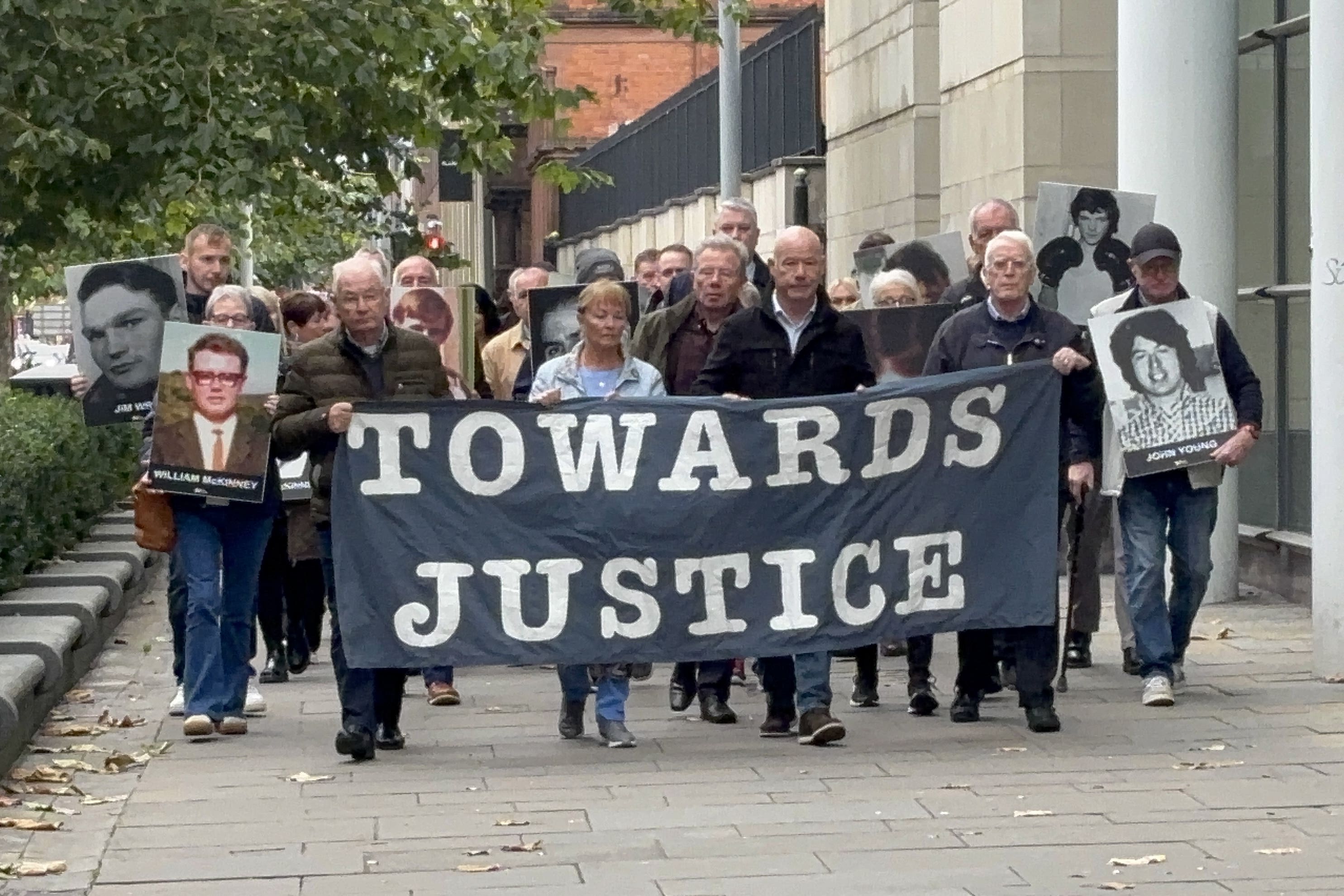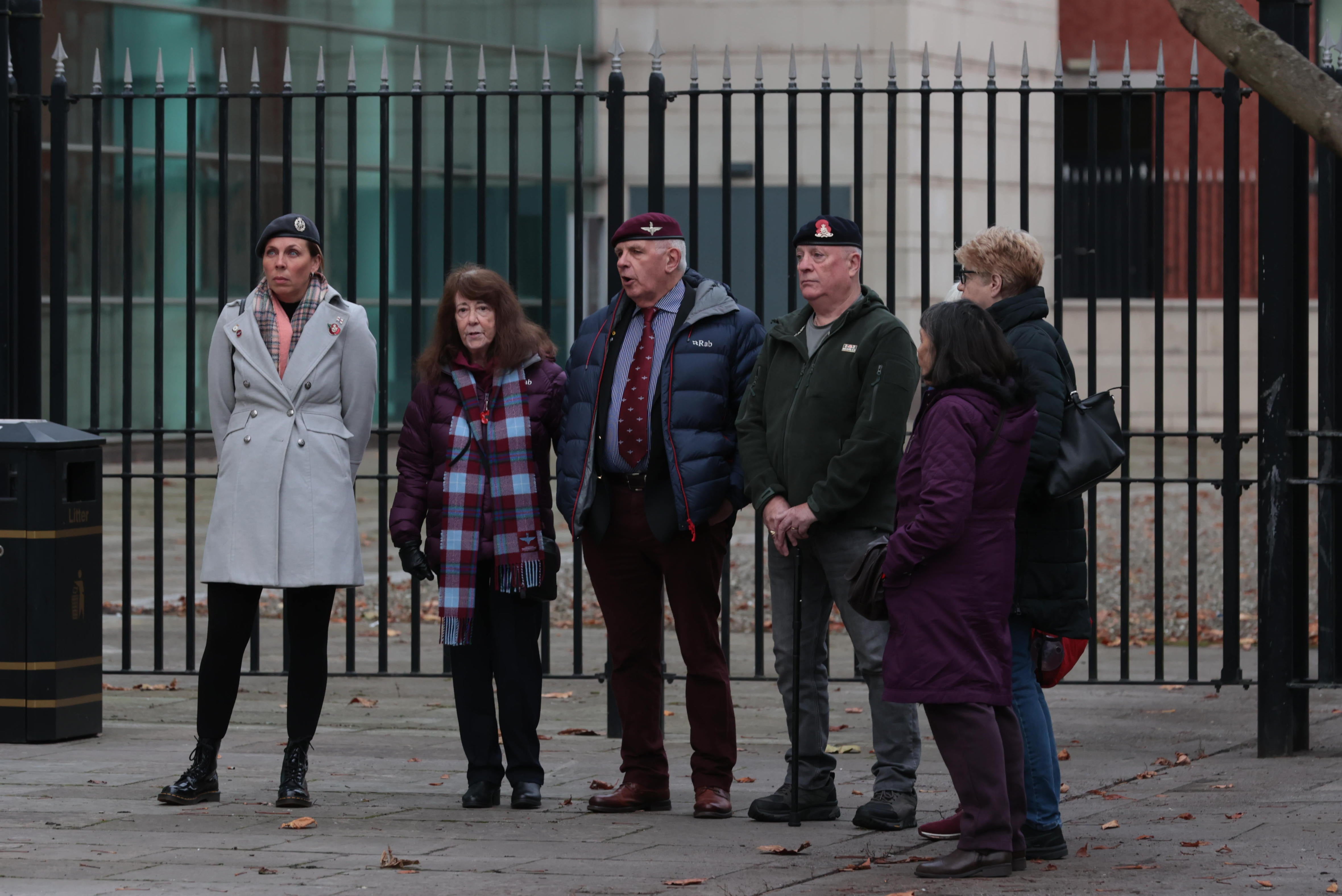A Bloody Sunday paratrooper has been found not guilty of committing two murders and five attempted murders in Derry in 1972.
Delivering his judgment at Belfast Crown Court on Thursday, Judge Patrick Lynch said the evidence presented against the veteran – referred to in court as Soldier F – fell well short of what was required for conviction.
Soldier F had been accused of the murders of James Wray and William McKinney on Bloody Sunday, regarded as one of the darkest days of the Troubles in Northern Ireland. The veteran had also been accused of attempting to murder Michael Quinn, Patrick O’Donnell, Joseph Friel, Joe Mahon and an unknown person.
Thirteen people were killed when members of the Parachute Regiment opened fire on a civil rights demonstration in the city.
The non-jury trial heard evidence across four weeks, which included statements by two of Soldier F’s colleagues.

Soldier F was present at Belfast Crown Court for each day of the trial, concealed behind a curtain in the courtroom. Relatives of the men killed and supporters of Soldier F also attended each day of the trial.
In his judgment, Judge Lynch said there was no concept of “collective guilt” in the courts.
He said the crown had failed to establish that Soldier F was “knowingly and intentionally assisting in the shootings, with intent to kill, or was shooting himself with that intention”.
He said the sole evidence against Soldier F was provided by two other veterans, Soldiers G and H, and that there were difficulties in relying on it.
The judge said: “Their statements, the sole and decisive evidence, cannot be tested in a way that witnesses giving evidence from the witness box would be. Delay has, in my view, seriously hampered the capacity of the defence to test the veracity and accuracy of the hearsay statements.”

Judge Lynch told Belfast Crown Court that on Bloody Sunday a number of members of the Parachute Regiment entered Glenfada Park North in Derry and started firing at unarmed civilians at a distance of 50 metres or less.
He said this had resulted in two murders and a number of people being unlawfully wounded.
The judge said: “They had totally lost all sense of military discipline. They were members of a regiment formed in 1942 at the behest of prime minister [Winston] Churchill, and had a proud record in World War Two.”
He added: “Those who fought valiantly against SS Panzer divisions in 1944 have had their regiment sullied by some of their successors shooting in the back unarmed civilians fleeing from them on the streets of a British city.
“Those responsible should hang their heads in shame.”
In the packed public gallery at Court 12, gathered relatives of the Bloody Sunday victims gave no visible or audible response as Soldier F was found not guilty on all counts. There was also no reaction from those in the public gallery supporting the former paratrooper.
The family of one of the men killed vowed to fight on. McKinney's brother Mickey said outside court: “The families and wounded and our supporters leave this courthouse with an incredible sense of pride in our achievements. The blame lies firmly with the British state, with the RUC who failed to investigate the murders on Bloody Sunday properly, or indeed at all; and with the British army who shielded and enabled its soldiers to continue to murder with impunity.”
Ciaran Shiels, a solicitor who represents some of the Bloody Sunday families, said there was no right of appeal in the case but they were waiting for a review from the Public Prosecution Service in relation to alleged perjury by former soldier known as Soldier H at the Saville Inquiry, and said they would push for a prosecution “without further delay”.







